Hillsborough match commander had 'little input' in plans
- Published
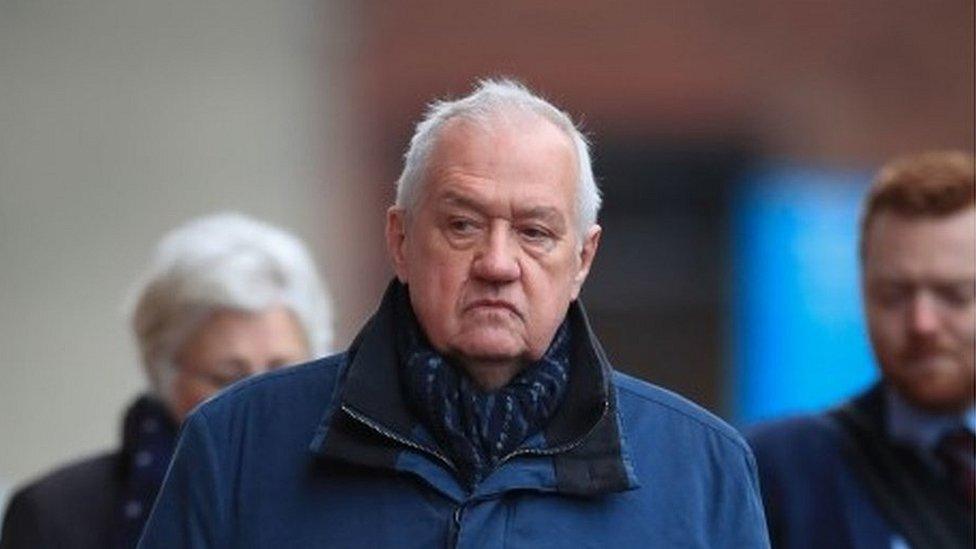
David Duckenfield denies gross negligence manslaughter
Hillsborough match commander David Duckenfield had "very little input" into the police operational order for the match, a court has heard.
Ex-Ch Supt Duckenfield signed off the operational order on the 6 April 1989, nine days before the FA Cup semi-final.
But former South Yorkshire police inspector Stephen Sewell agreed much of the planning had been done before Mr Duckenfield took charge.
Mr Duckenfield, 74, denies the gross negligence manslaughter of 95 fans.
Mr Duckenfield, of Ferndown, Dorset, officially started his role as commander of F Division on 27 March 1989.
Under questioning from defence lawyer Benjamin Myers QC, Mr Sewell accepted that "in reality" Mr Duckenfield had "had very little input" into the operational order and that "very many" officers on duty had experience of policing at Hillsborough.
Mr Sewell, who was involved in the planning for the FA Cup semi-final, also agreed that the plans were built around those made for the 1988 semi-final because that game had been considered a success.
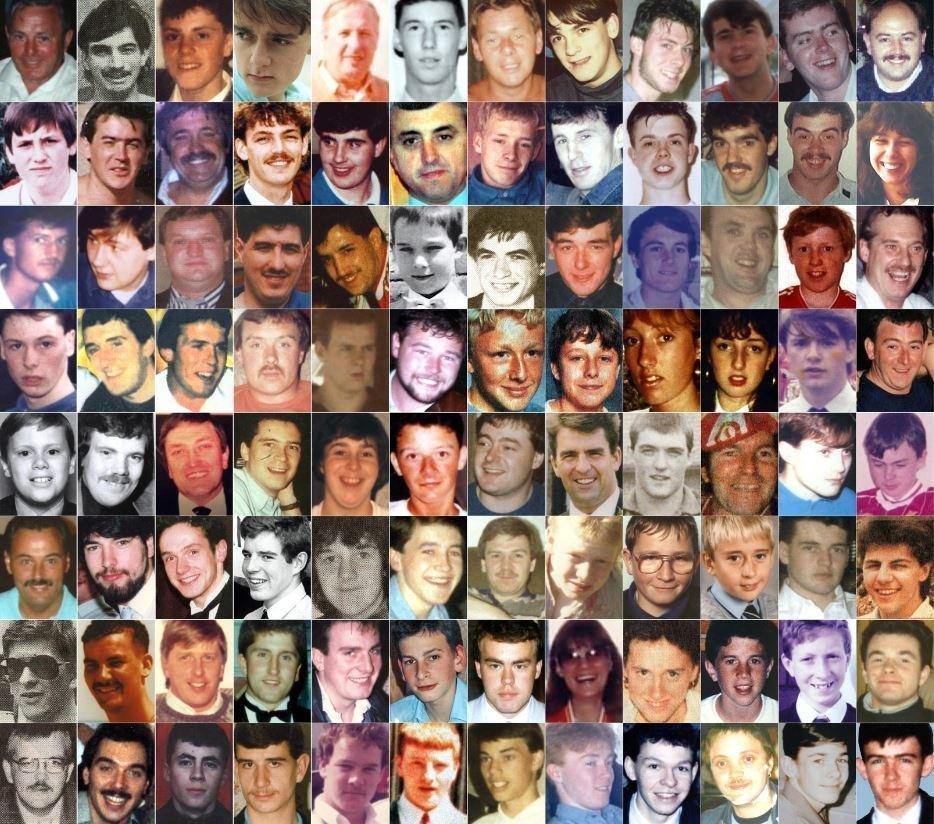
The 96 people who lost their lives in the Hillsborough disaster
Mr Sewell told the court Mr Duckenfield was made match commander because of his rank rather than his experience.
He confirmed that another officer, Supt Bernard Murray, had previously taken charge of league matches at Sheffield Wednesday's ground.
The witness also told the court he had not been aware of a policy of closing the tunnel leading to the central pens on the Leppings Lane terrace until after the disaster.
He said it had not been a feature of the operational order and that senior officers had not suggested it as an option.
Mr Duckenfield's co-accused Graham Mackrell, 69, of Stocking Pelham, Hertfordshire, who was club secretary of match hosts Sheffield Wednesday in 1989, denies breaching a condition of the ground's safety certificate and a health and safety offence.
The trial continues.
- Published29 January 2019
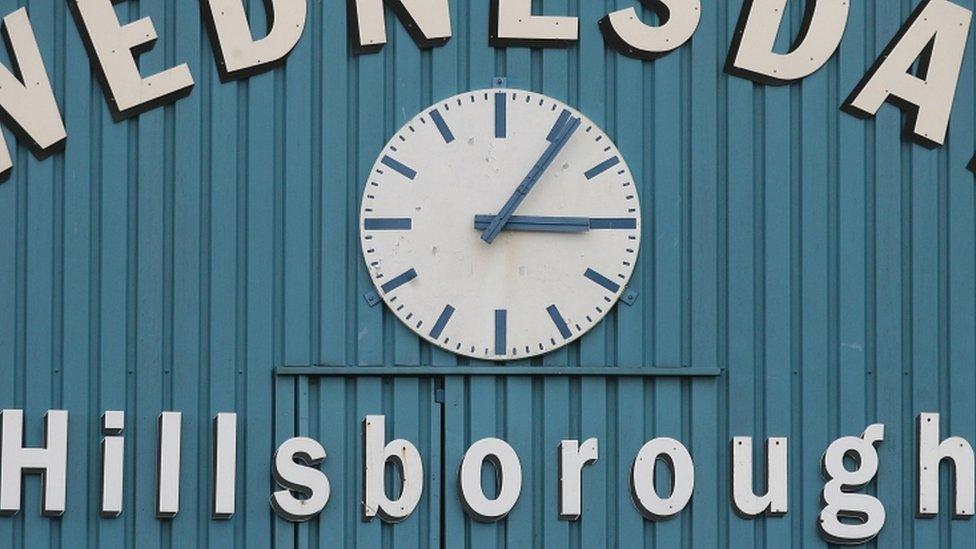
- Published28 January 2019

- Published25 January 2019

- Published24 January 2019

- Published23 January 2019
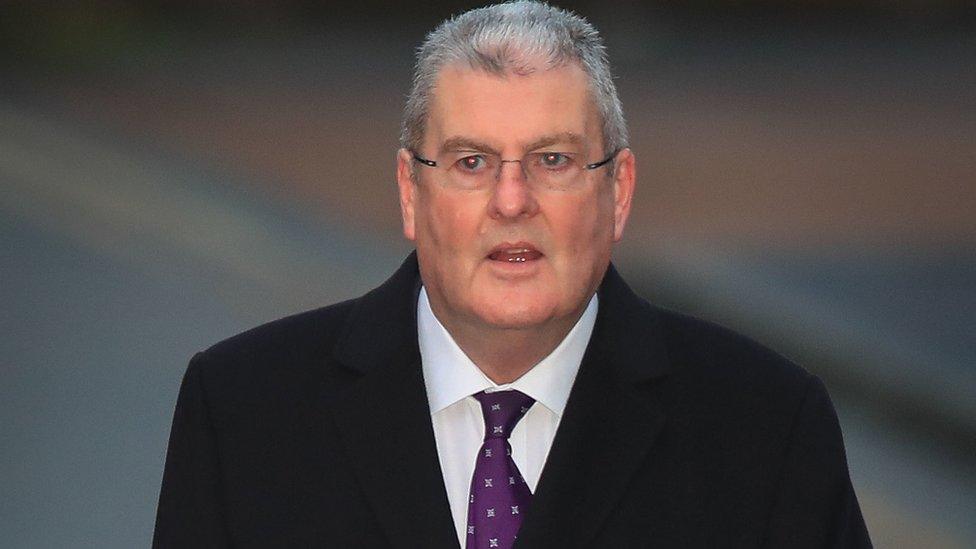
- Published22 January 2019
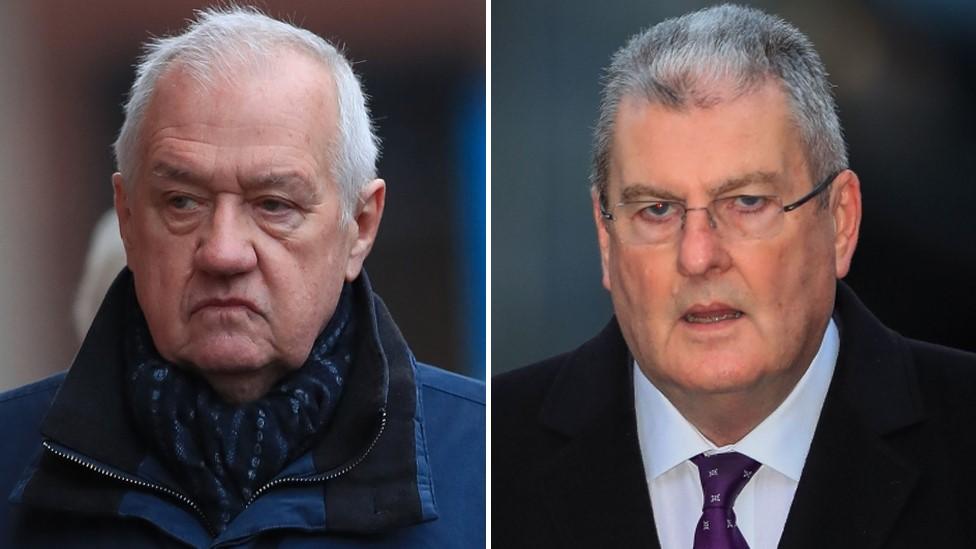
- Published17 January 2019
